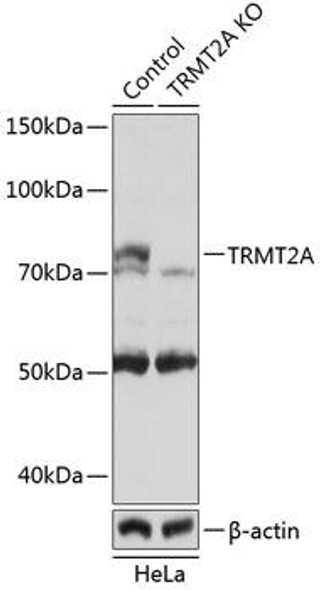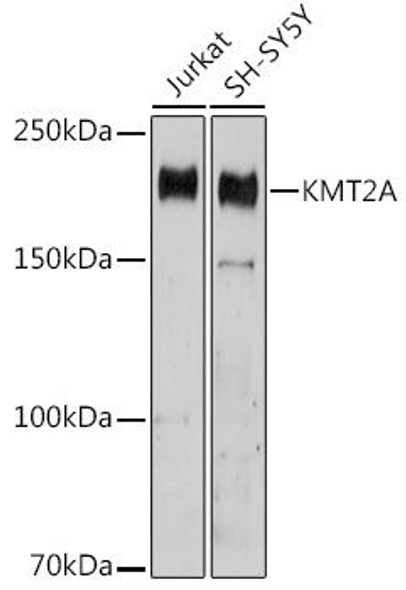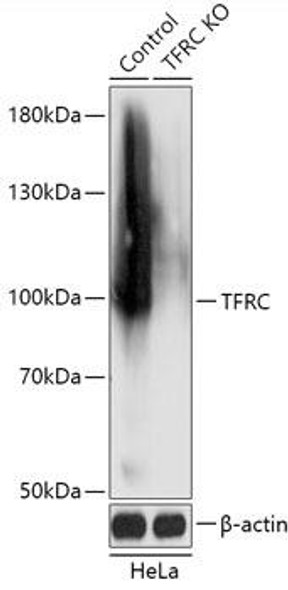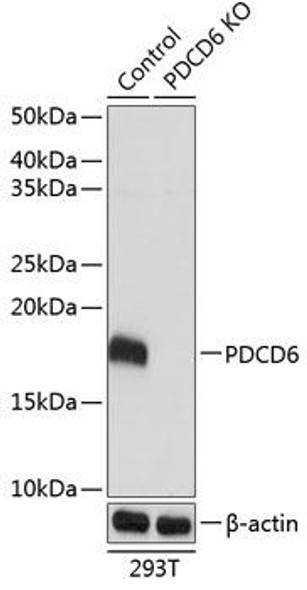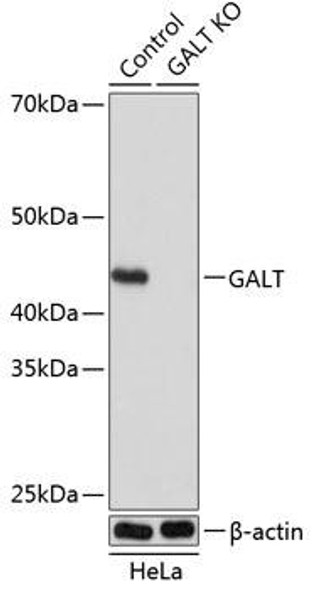Description
Anti-PHGDH Antibody (CAB19974)[KO Validated]
The PHGDH Polyclonal Antibody (CAB19974) is a valuable tool for researchers studying the PHGDH enzyme, a key player in cancer metabolism. This antibody, derived from rabbits, is highly specific for human samples and has been validated for use in Western blot applications. By binding to the PHGDH protein, this antibody allows for the detection and analysis of PHGDH expression in various cell types, making it an essential component for investigations in oncology and metabolic research.PHGDH is a critical enzyme involved in the serine biosynthesis pathway, which is upregulated in many cancer cells to support their rapid growth and proliferation.
Inhibiting PHGDH has shown promise as a potential therapeutic strategy for combating cancer, making the study of this enzyme of great interest to the scientific community. The PHGDH Polyclonal Antibody provides researchers with a reliable tool to further explore the role of PHGDH in cancer metabolism and develop novel anti-cancer therapies.
| Antibody Name: | Anti-PHGDH Antibody [KO Validated] |
| Antibody SKU: | CAB19974 |
| Antibody Size: | 20uL, 50uL, 100uL |
| Application: | WB IF |
| Reactivity: | Human, Mouse, Rat |
| Host Species: | Rabbit |
| Immunogen: | Recombinant protein of human PHGDH. |
| Application: | WB IF |
| Recommended Dilution: | WB 1:500 - 1:2000 IF 1:50 - 1:200 |
| Reactivity: | Human, Mouse, Rat |
| Positive Samples: | HeLa |
| Immunogen: | Recombinant protein of human PHGDH. |
| Purification Method: | Affinity purification |
| Storage Buffer: | Store at -20°C. Avoid freeze / thaw cycles. Buffer: PBS with 0.02% sodium azide, 50% glycerol, pH7.3. |
| Isotype: | IgG |
| Sequence: | Email for sequence |
| Gene ID: | 26227 |
| Uniprot: | O43175 |
| Cellular Location: | |
| Calculated MW: | 56kDa |
| Observed MW: | 57KDa |
| Synonyms: | PHGDH, 3-PGDH, 3PGDH, HEL-S-113, NLS, NLS1, PDG, PGAD, PGD, PGDH, PHGDHD, SERA |
| Background: | This gene encodes the enzyme which is involved in the early steps of L-serine synthesis in animal cells. L-serine is required for D-serine and other amino acid synthesis. The enzyme requires NAD/NADH as a cofactor and forms homotetramers for activity. Mutations in this gene have been found in a family with congenital microcephaly, psychomotor retardation and other symptoms. Multiple alternatively spliced transcript variants have been found, however the full-length nature of most are not known. |
| UniProt Protein Function: | PHGDH: Defects in PHGDH are the cause of phosphoglycerate dehydrogenase deficiency (PHGDH deficiency). It is characterized by congenital microcephaly, psychomotor retardation, and seizures. Belongs to the D-isomer specific 2-hydroxyacid dehydrogenase family. |
| UniProt Protein Details: | Protein type:Oxidoreductase; Amino Acid Metabolism - glycine, serine and threonine; EC 1.1.1.95; Cell development/differentiation Chromosomal Location of Human Ortholog: 1p12 Cellular Component: cytosol Molecular Function:electron carrier activity; NAD binding; phosphoglycerate dehydrogenase activity Biological Process: neural tube development; glial cell development; glycine metabolic process; gamma-aminobutyric acid metabolic process; glutamine metabolic process; L-serine biosynthetic process; spinal cord development; regulation of gene expression; amino acid biosynthetic process; brain development; taurine metabolic process; neurite development; threonine metabolic process Disease: Phosphoglycerate Dehydrogenase Deficiency; Neu-laxova Syndrome 1 |
| NCBI Summary: | This gene encodes the enzyme which is involved in the early steps of L-serine synthesis in animal cells. L-serine is required for D-serine and other amino acid synthesis. The enzyme requires NAD/NADH as a cofactor and forms homotetramers for activity. Mutations in this gene have been found in a family with congenital microcephaly, psychomotor retardation and other symptoms. Multiple alternatively spliced transcript variants have been found, however the full-length nature of most are not known. [provided by RefSeq, Aug 2011] |
| UniProt Code: | O43175 |
| NCBI GenInfo Identifier: | 21264510 |
| NCBI Gene ID: | 26227 |
| NCBI Accession: | O43175.4 |
| UniProt Secondary Accession: | O43175,Q5SZU3, Q9BQ01, B2RD08, |
| UniProt Related Accession: | O43175 |
| Molecular Weight: | 533 |
| NCBI Full Name: | D-3-phosphoglycerate dehydrogenase |
| NCBI Synonym Full Names: | phosphoglycerate dehydrogenase |
| NCBI Official Symbol: | PHGDH |
| NCBI Official Synonym Symbols: | NLS; PDG; PGD; NLS1; PGAD; PGDH; SERA; 3PGDH; 3-PGDH; PHGDHD; HEL-S-113 |
| NCBI Protein Information: | D-3-phosphoglycerate dehydrogenase; epididymis secretory protein Li 113 |
| UniProt Protein Name: | D-3-phosphoglycerate dehydrogenase |
| UniProt Gene Name: | PHGDH |
| UniProt Entry Name: | SERA_HUMAN |


![Anti-PHGDH Antibody [KO Validated] (CAB19974)](https://cdn11.bigcommerce.com/s-h68l9z2lnx/product_images/t/363/A19974_1__28307.jpg)


